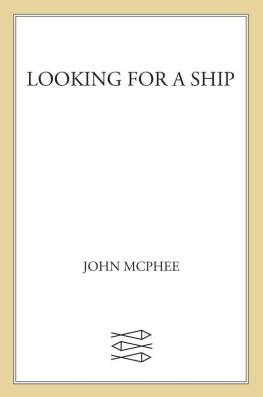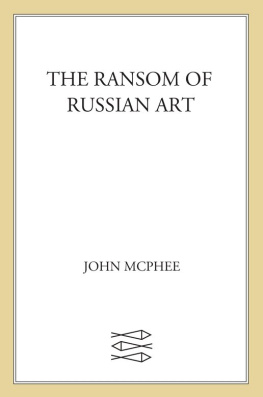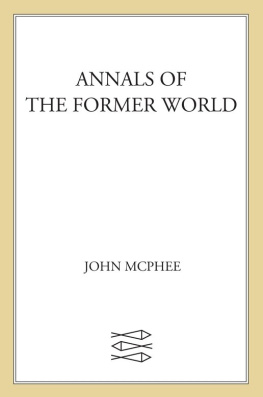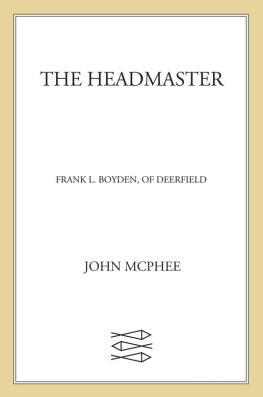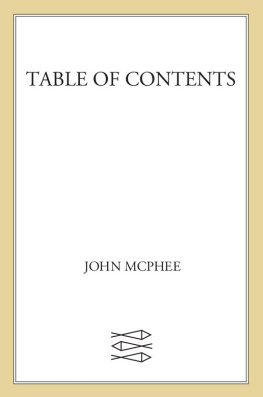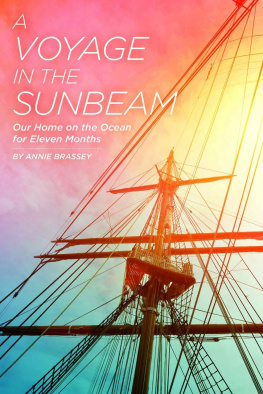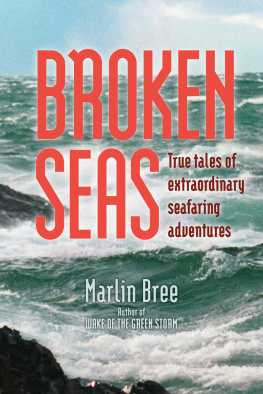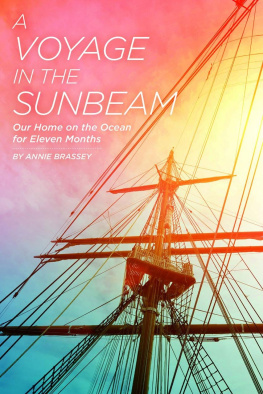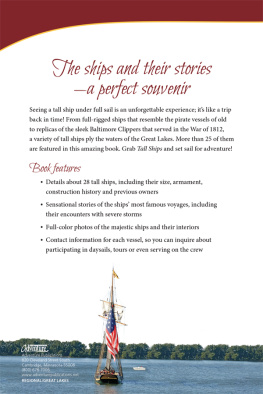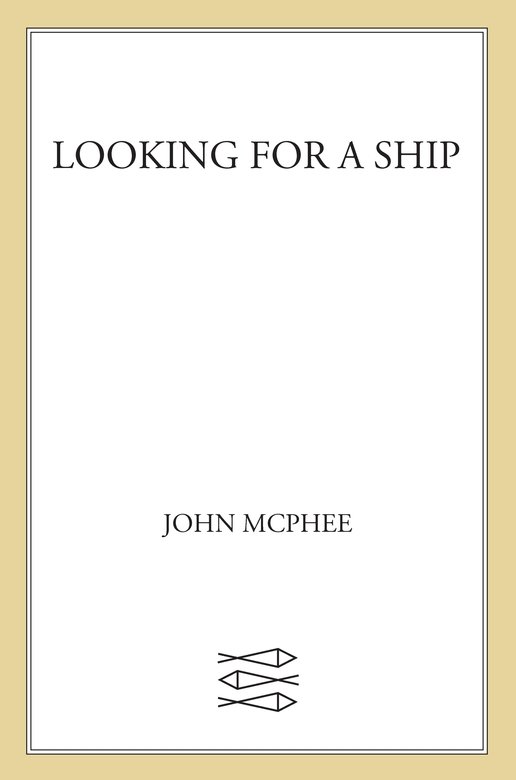A ndy was worried about the Ben Sawyer Bridge. He thought of it stuck open, and saw in his minds eye an unending line of stifled cars, his own among them. If his neurons seemed hyperactive, they had some reason to be. On the other hand, how often did this drawbridge get stuck? Once a year? Three times every two years? Whatever the statistics might be, they would make no difference to Andy. The drawbridge had stuck open one afternoon with him on the wrong side, and the delay was so prolonged that he checked into a motel and caught up on sleep. On that day, he wasnt going anywhere important. On this day, he allowed a minimum of three hours to complete a journey of thirty minutes. He was looking for a ship.
In Andys wallet was a National Shipping Card that had been stamped in Boston ten and a half months before, registering under his name, George Anderson Chase, the date, the hour, and the minute when he arrived in a unionhall after leaving his last ship. The older the card, the better the prospects for a new job. If the card were to go twelve months unused, it would roll overlose all seniority, and begin again. Meanwhile strongly competitive, it had all but reached the status of a killer card. In the evolving decline of the United States Merchant Marine, qualified people seeking work so greatly outnumbered the jobs there were to fill that you almost had to hold a killer card or your chances were slim for shipping out. You went to a union hall, presented the card in person at a job call, and if someone tossed in an older card you stayed on the beach. From his home, in Maine, Andy had come to Charleston this time because he thought that shipping cards deadlier than his would be more numerous in Boston or New York. On sheer speculation, I joined him, our idea being that when he got himself a ship he would ask the shipping company if I could go along on the voyage as a P.A.C.Person in Addition to Crew. Andy said, I probably have a better chance out of Charleston. Fewer people. Less competition. A fairly steady stream of ships. Besides, he had a place to stay. His wifes mother lived on an island whose connection to the mainland was the Ben Sawyer Bridge.
We had no idea where we would be going, if anywhere. We had gear for cool weather and gear for the tropics. Looking for a ship, Andy had once spent two months fruitlessly hanging around the union hall in Charleston. He had put in many weeks in New York with the same result. He once went as far as Puerto Rico. He spent two weeks there going to the hall. He got no ship. He tried Charleston onhis way home, and with great luck got a ship in two days. The ship he got in Charleston was called the Puerto Rican. He was on it four months, sailing as third mate, coastwise. A chemical tanker, it blew up, out of San Francisco, on a later voyage. It broke in half.
I had known Andy for several years. I had been to his home in Maine. I had accompanied him to the New York hall of the International Organization of Masters, Mates, and Pilots. The New York hall is in Jersey City. On the PATH train, Andy said, The union halls are not really halls. Theyre like dentists offices. This one was a room on the east side of the fifteenth floor of a fairly new building at 26 Journal Square. The view of Manhattan was unimpeded from the midtown skyline to the towers of world trade. Andy was just checking out New York. His card was only thirty days old, and he was taking the long chance of finding a short trip that no one else in his category would want. By union rules, he could not do his checking by telephone. If he called the hall, the dispatcher would not tell him who was competing for what. One of the mariners in the hall was a friend of Andys named Bryan Thomas, who explained to me, You might trust a friend to check out a hall for you, but what friend? Almost anyone would tell you not to bother coming, no matter what the work situation might be. He went on to say that he had been surprised as he shook my hand, because there seemed to be some sincerity in the warmth of my hello. Andy told him that I was no threat.
Thomas said, There is so much hunger for work thatno one is happy to see anybody else. We are a brotherhood, so we hate each other.
Andy said, Nobody ever does anybody a favor. You cant beg a job off of somebody. It just isnt done.
The New York hall was about the size of a high-school classroom, and an interior window separated it from a small office. At one-thirty, the time of the job call, action would take place at the window. Job sheets, if any, would be posted on a corkboard. Meanwhile, there was a clipboard with a sheaf of papers headed OFFSHORE JOBS, showing positions that had been picked up in recent weeks and the age of the cards that had won them. Some of the runs were Coastwise, Far East, South America, N. Europe, R/World , W. Africa, Caribbean, Med, Panama. Andy said,South America is the romance runbeautiful women, beautiful ports. Andy had never been to South America. To make unexpected replacements, owners will fly people to foreign ports. In extremes, they have used the Concorde. Andy once turned up for a job call at the New York hall and that night was on a flight to Athens. On each offshore-job sheet was a Reason column, explaining why the job had come open: LOA (leave of absence), Quit, Fired. One sheet had called for a mariner to fly off at once on Iberia to Gibraltar. Rotary was the reason. He replaced someone whose hundred and twenty days were upthe maximum sea time allowed by the union, in the interest of rationing available work.
As one-thirty neared, more than thirty mates werefanned out around the office door like fish at the mouth of a tributary stream. They wore nylon jackets, down vests, rubber-soled moccasins, bluejeans, cotton-flannel shirts, fatigue jackets, trenchcoats, sweaters. Nobody looked nautical. Two were in suits and ties. This could have been any carpenters or plumbers union hall. Add cowboy boots and it could have been a union hall in Fairbanks at the fading end of the pipeline boom.
The majority dont tell you what they do in their other lives, Andy said. He had shipped out with restaurateurs, real-estate entrepreneurs, and a lot of people who, in the proximity of fresh water, just go fishing. The cook on one of Andys ships was a male stripper. Andy had shipped out with an engine-room wiper in his sixties who called his broker from every port. Andy had shipped out with a sax player who had lost two fingers when they became caught between a mooring line and a capstan. For unrelated reasons, he was known as Goldfinger.
The dispatcher came to the window. The thirty-odd faces lifted in attention. Loudly, the dispatcher said, Nothing on the offshore, and he read the particulars of four night-mate jobseight-hour relief work on docked shipsin Port Elizabeth and Howland Hook. That was it. That was the work available for all those mates. They showed no surprise and quickly dispersed. Sometimes, if you hang around a union hall after all the other people have left, a desperate last-minute call will come in, and if you want the job you can have it. You dash down and join the ship,Andy said. But that is very rare. Shipping out that way is known as a pierhead jump. On this day, no one was jumping.

